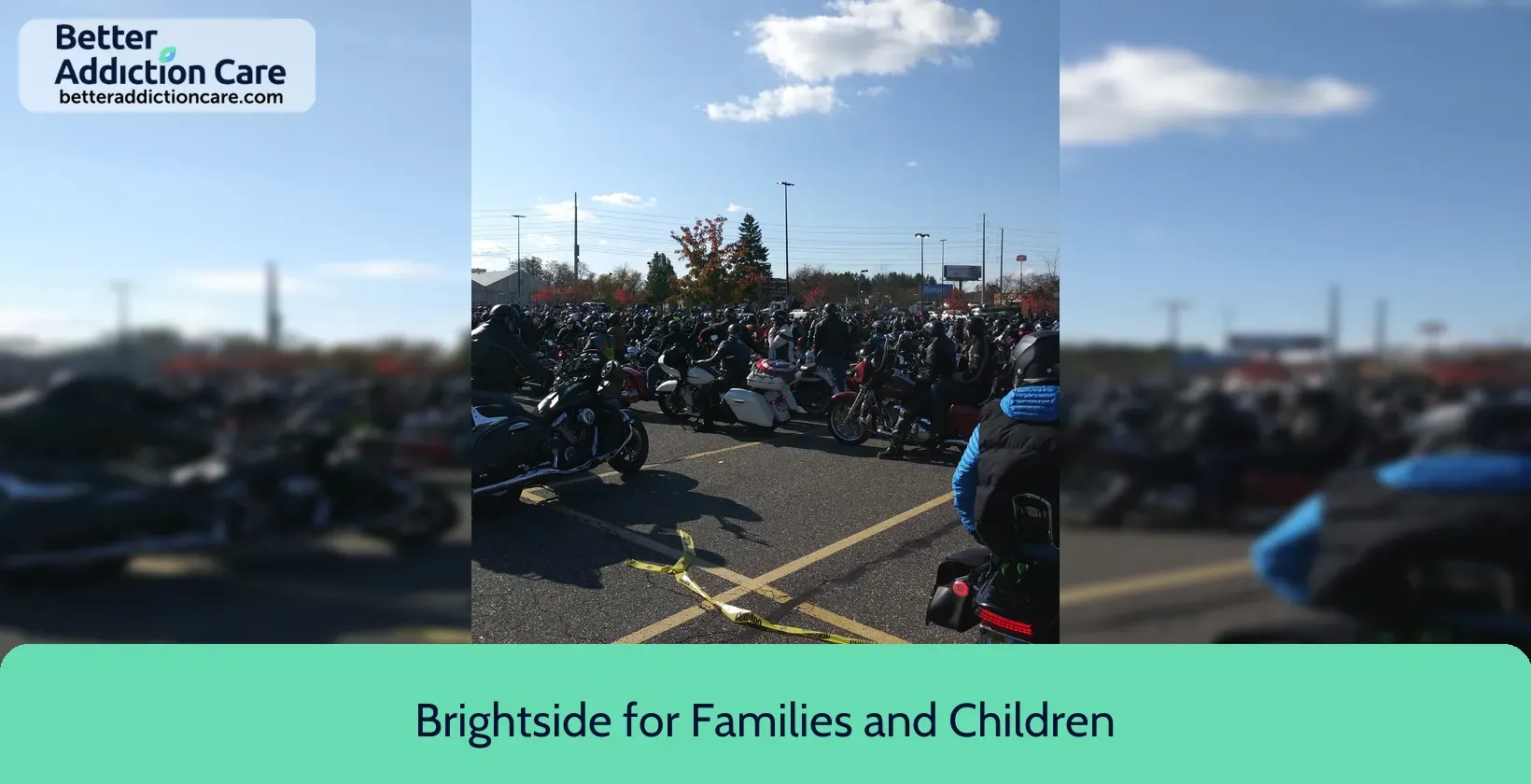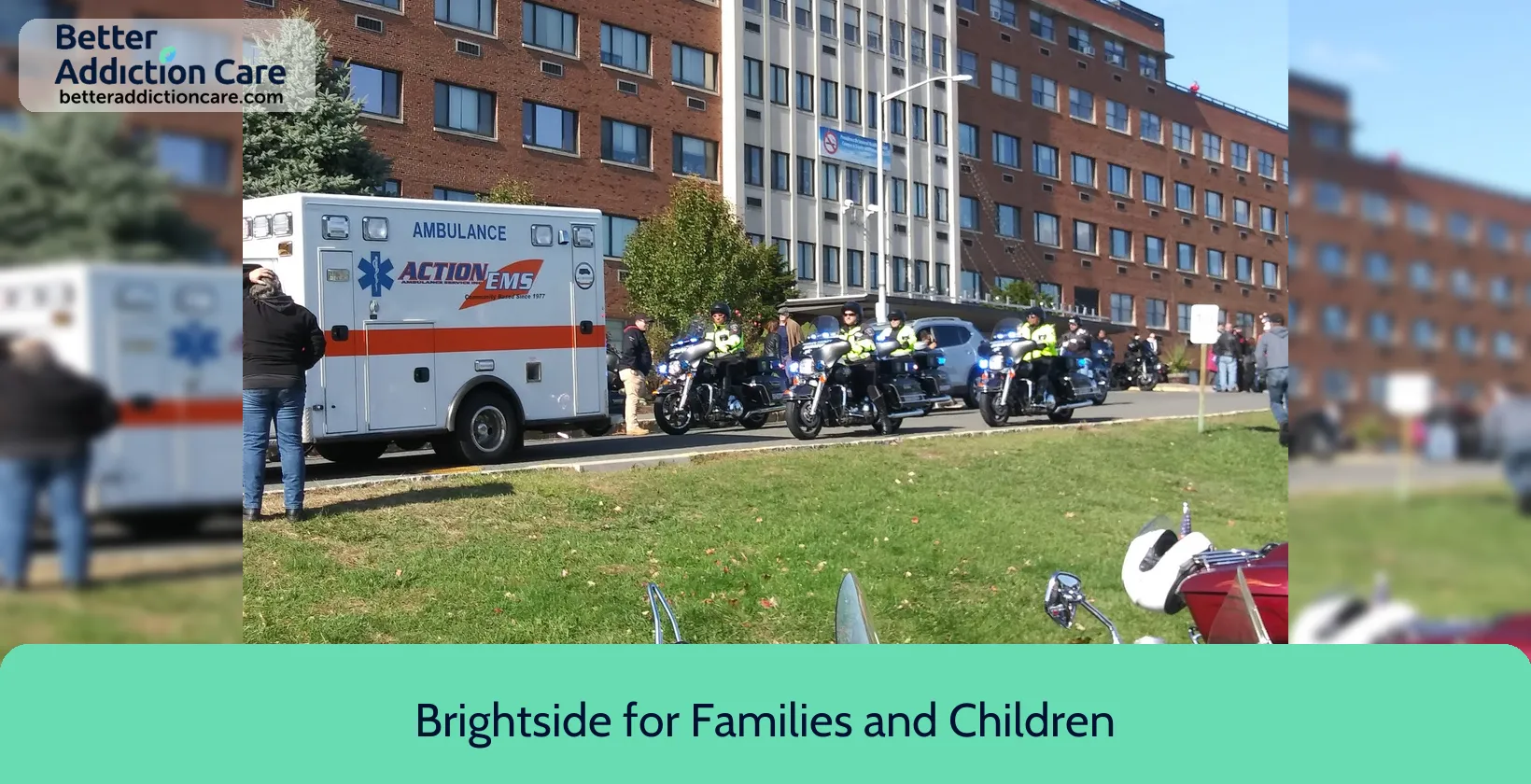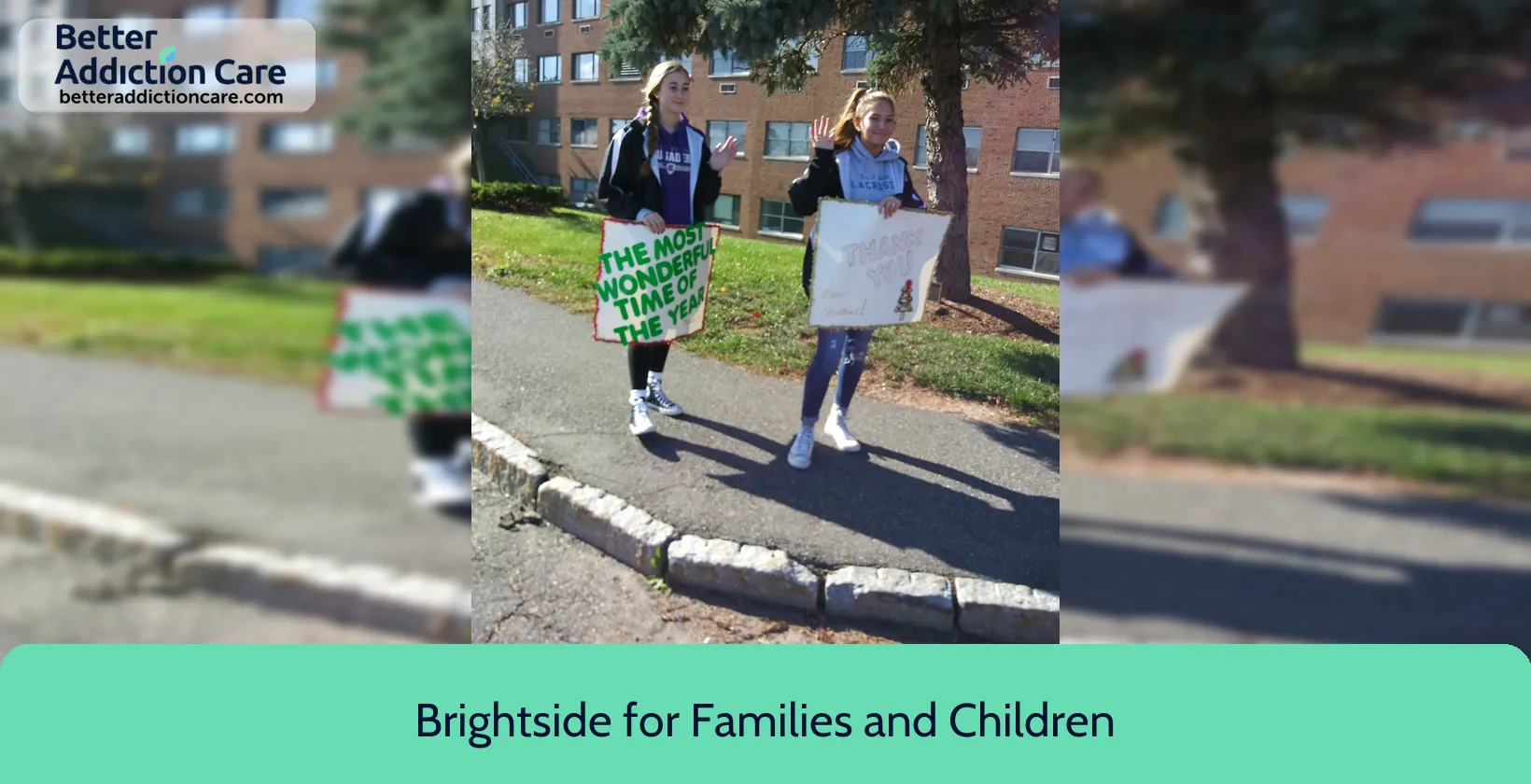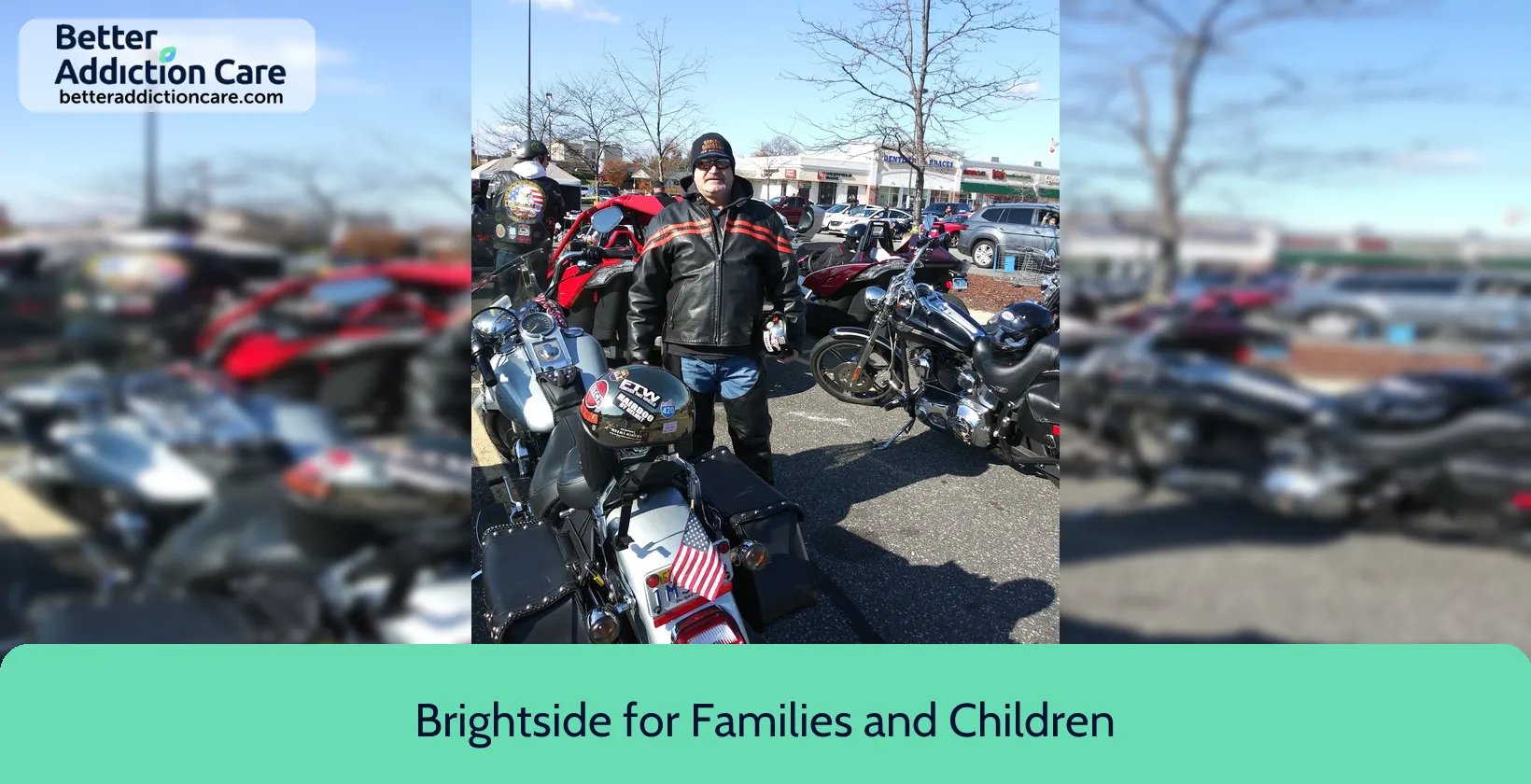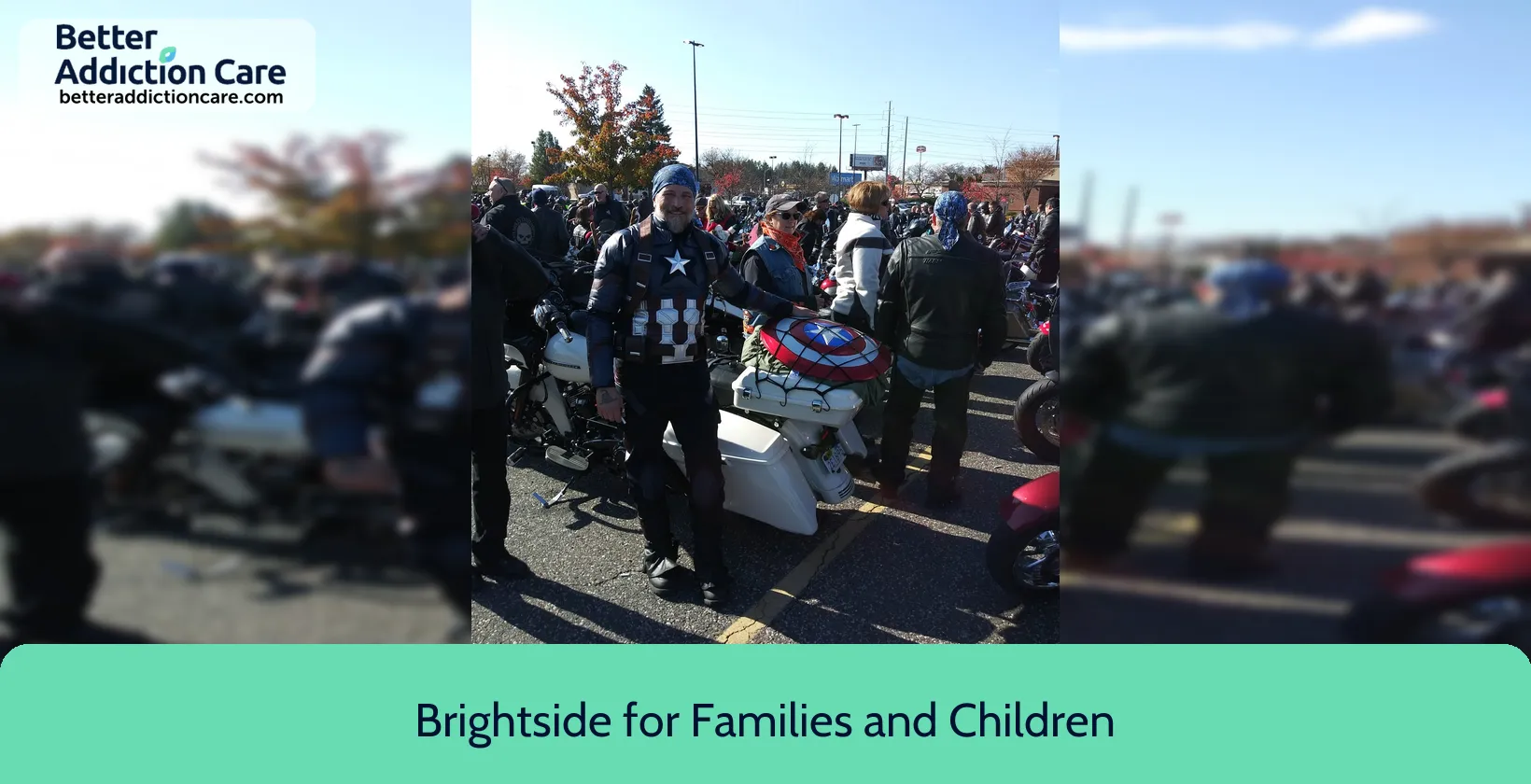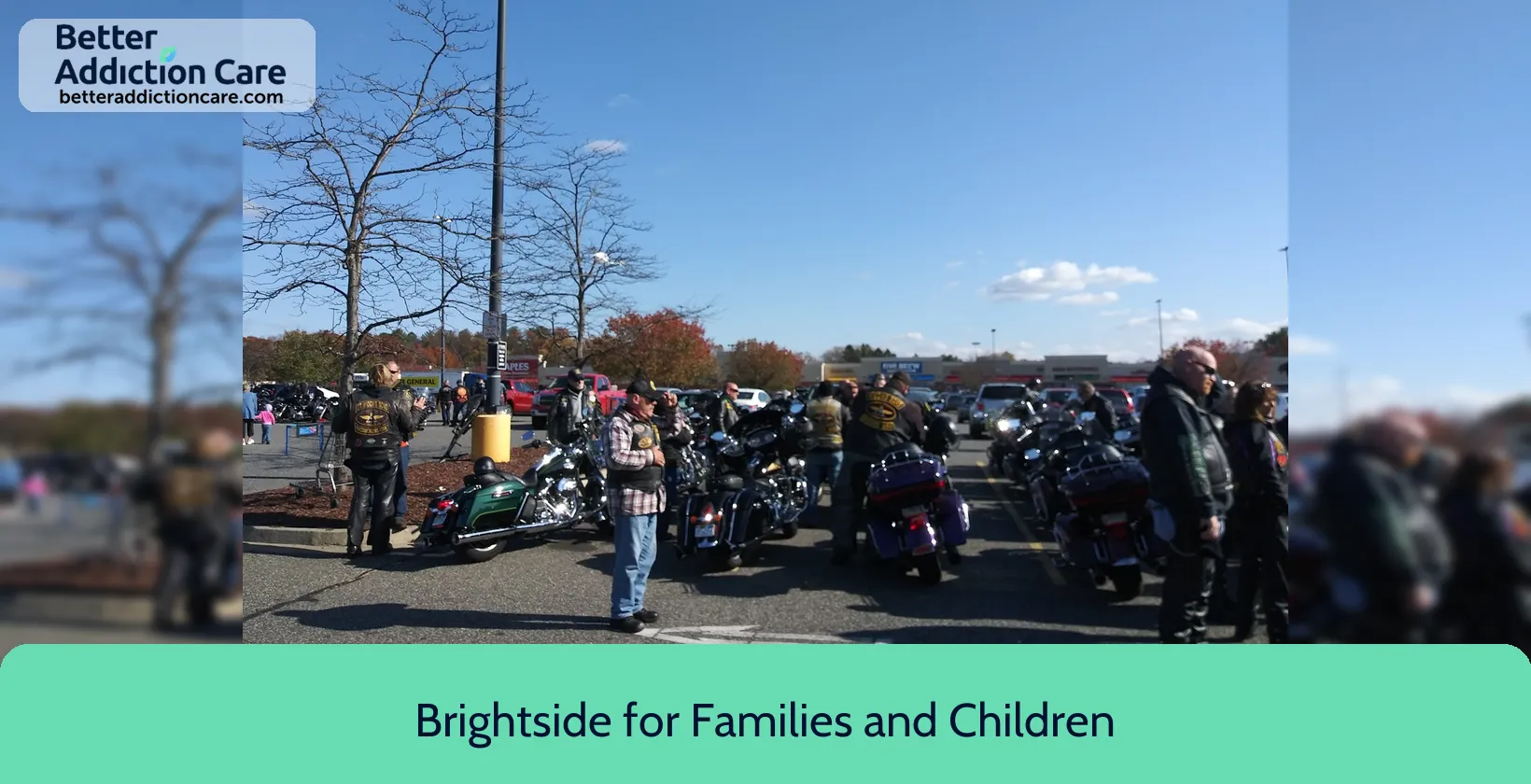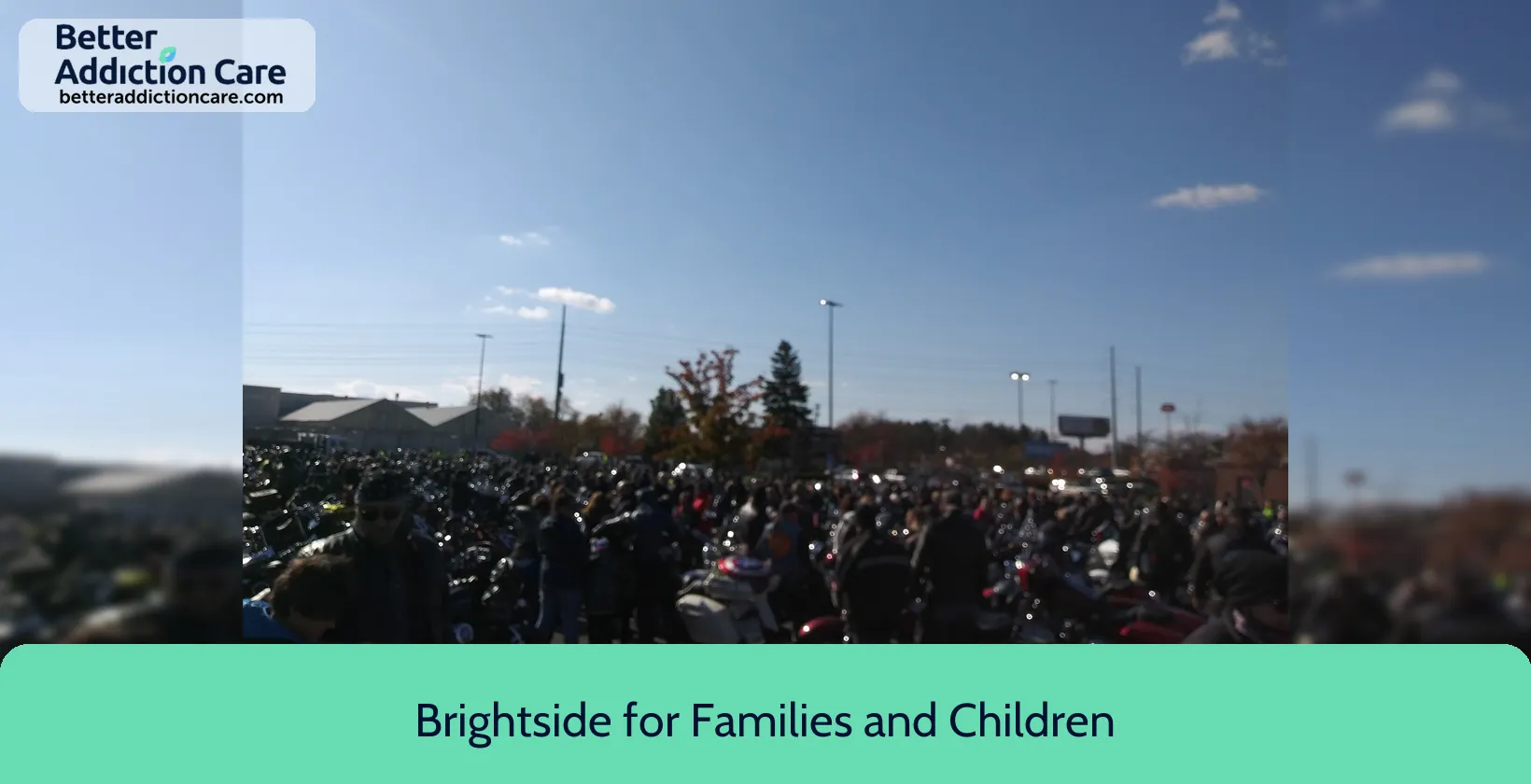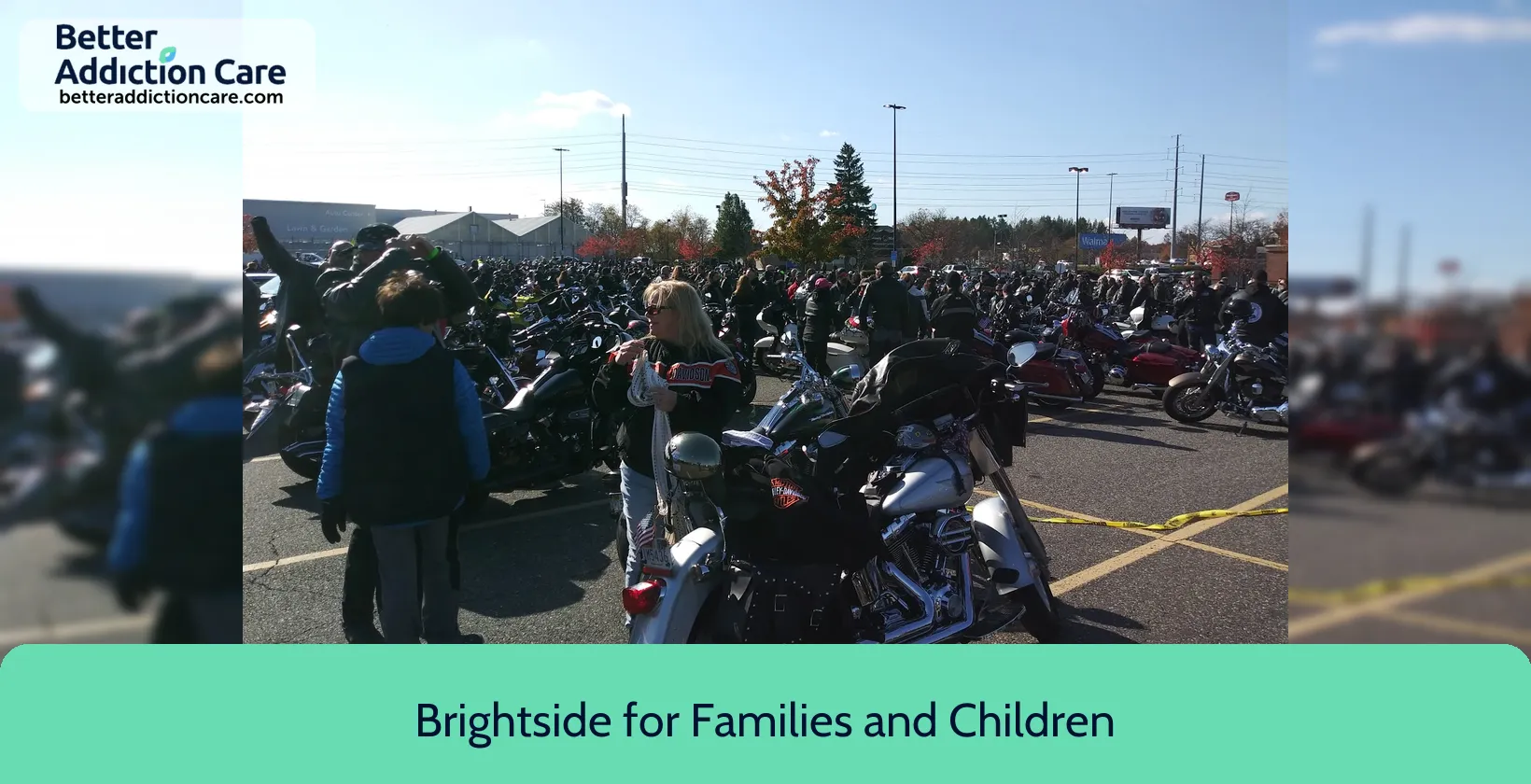Brightside for Families and Children
Overview
Brightside for Families and Children is a mental health treatment center for people seeking treatment near Hampden County. As part of their treatment modalities for recovery, Brightside for Families and Children provides individual psychotherapy. during treatment. Brightside for Families and Children is located in Holyoke, Massachusetts, accepting medicaid for treatment.
Brightside for Families and Children at a Glance
Payment Options
- Medicaid
- Private health insurance
- Per session
- Cash or self-payment
Assessments
- Comprehensive mental health assessment
- Comprehensive substance use assessment
Age Groups
- Children/adolescents
- Young adults
Ancillary Services
- Family psychoeducation
Highlights About Brightside for Families and Children
6.50/10
With an overall rating of 6.50/10, this facility has following balanced range of services. Alcohol Rehabilitation: 8.00/10, Drug Rehab and Detox: 6.00/10, Insurance and Payments: 6.00/10, Treatment Options: 6.00/10.-
Alcohol Rehabilitation 8.00
-
Drug Rehab and Detox 6.00
-
Insurance and Payments 6.00
-
Treatment Options 6.00
Accreditations
The Joint Commission:

The Joint Commission accreditation for addiction and behavioral health signifies that a facility has met rigorous standards in patient care, treatment, and safety. This recognition assures patients and professionals of the facility's commitment to providing high-quality, evidence-based care in the fields of addiction and behavioral health, fostering trust and confidence in their services.
Treatment At Brightside for Families and Children
Treatment Conditions
- 24-Hour Clinical Care
- Alcoholism
- Mental health treatment
- Substance use treatment
- Co-occurring Disorders
Care Levels
- Outpatient
- Hospital inpatient/24-hour hospital inpatient
Treatment Modalities
- Individual psychotherapy
Ancillary Services
Languages
- Sign language services for the deaf and hard of hearing
- Spanish
Special Programs
- Children/adolescents with serious emotional disturbance (SED)
Contact Information
Read our Most Recent Article About Drug Addiction
DISCLAIMER: The facility name, logo and brand are the property and registered trademarks of Brightside for Families and Children, and are being used for identification and informational purposes only. Use of these names, logos and brands shall not imply endorsement. BetterAddictionCare.com is not affiliated with or sponsored by Brightside for Families and Children.
